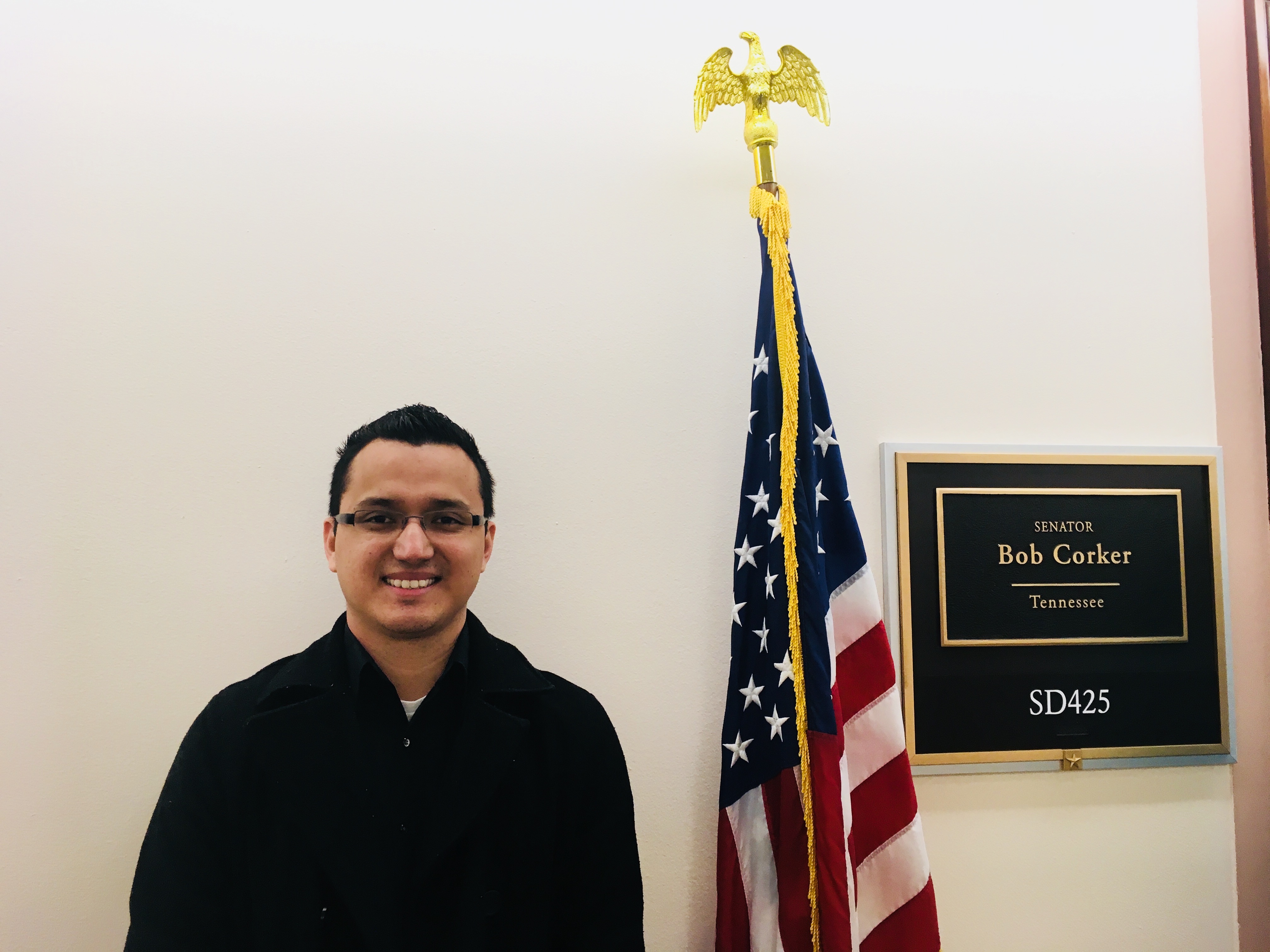WASHINGTON, D.C. — As President Donald Trump met with Senate Minority Leader Chuck Schumer (D-NY) Friday to avoid a government shutdown, hundreds of immigrants visited congressional offices to call on lawmakers to pass a spending bill that includes immigration provisions that help them.
Since Trump phased out his predecessor’s immigration executive action known as the Deferred Action for Childhood Arrivals (DACA) program last September, many of these so-called DREAMers have been scrambling to retain an immigration status that lawfully allows them to stay in the country. The DACA program grants temporary deportation relief and work authorization in two-year increments to certain immigrants who came to the country as children. Many of those DACA recipients have faced a wave of status expiration dates, putting them at risk of deportation.
Missael Garcia, a 27-year-old DACA recipient from Maryland, was in the nation’s capital to call on congressional representatives of his state to pass a spending bill that includes a “clean” DREAM Act.
“[I’m here] to make sure Congress commits to not sign anything if there isn’t a clean DREAM Act included … to make sure they support us,” Garcia told ThinkProgress. For him, a “clean” bill means permanent protections for people like him who have used their DACA statuses to become employed so that they can have more stable lives. He’s been able to use his DACA status to get a job with the advocacy group CASA de Maryland as a community organizer in the Baltimore region. He has also been able to work as a substitute teacher and a mentor and has saved enough money to buy a car.
For Garcia and many other DACA recipients, a “clean” bill would ideally not include provisions that increase the number of federal immigration agents who could go after their undocumented parents.
“I’m here fighting for a clean DREAM Act that can protect me so that I can protect my family as the time passes,” Garcia said. “The solution is not for [more] border security. We need to fix the system within inside the country first and then work outside the country so that they can have what they want, and what we want.”

Other DACA recipients like Cesar Bautista, a youth organizer with the Tennessee Immigrant and Refugee Rights Coalition (TIRRC), were also at the capital to meet with congressional lawmakers. Bautista gathered with a group of about 16 TIRRC organizers waiting to meet with Sen. Lamar Alexander (R-TN). The senator couldn’t meet with the group, but a staff member came by to speak with them for about ten minutes.
Before the off-the-record exchange with the staffer, Bautista and others handed the individual a “report card” of the senator’s record on immigration. They gave Alexander a “B” grade, reasoning that he had voiced support for co-sponsoring a bipartisan bill from Sens. Lindsey Graham (R-SC) and Dick Durbin (D-IL), but failed to ask that it be included in the budget negotiations. The group also gave Alexander an “F” for voting through a continuing resolution in December 2017 that didn’t include immigration provisions.
Bautista told ThinkProgress after the meeting that he was “a little upset” because Alexander’s office did not say he would vote on a must-pass spending bill if it didn’t include immigration provisions.
“That’s definitely upsetting because that’s another step he can do more just like our youths were asking,” Bautista said. “I think it’s great that they were very polite to meet with us and willing to engage in the conversation.”
“I am working to get a bipartisan solution on DACA by the March deadline, but I’m not going to allow Democrats to use my support for a DACA solution as an excuse to shut down the government,” Alexander told ThinkProgress in an emailed statement on Friday. “Tennesseans sent me here to make the government work for taxpayers, not to shut it down.”
Still, Bautista has reason to be concerned if lawmakers pass a spending bill without DACA provisions. Although his DACA doesn’t expire until 2019, he’s made a pretty permanent life in Tennessee with his wife and their new daughter.
“It’s like figuring now, ‘what’s going to happen to my life? What’s going to happen to my future?” Bautista said. “Because of DACA, I have been able to get a much better job, which I’ve been able to give a much more quality [sic] life for my daughter and my wife. All of that will be lost — all that I worked for. It would be an uncertainty of my future.”
